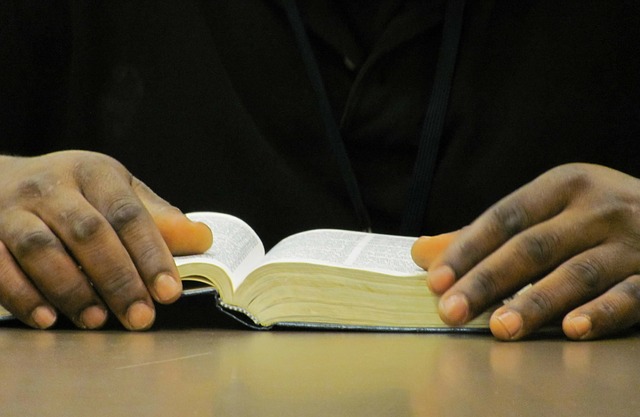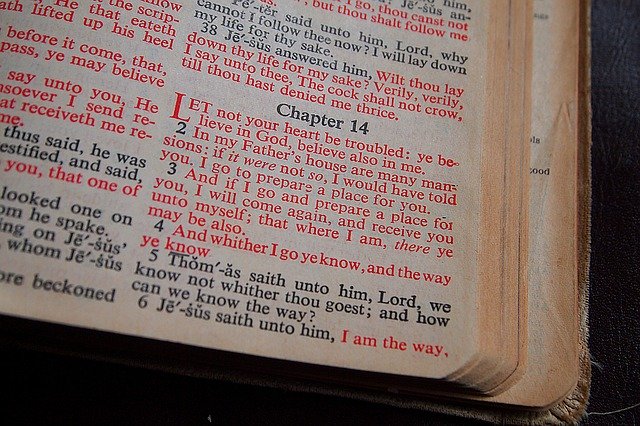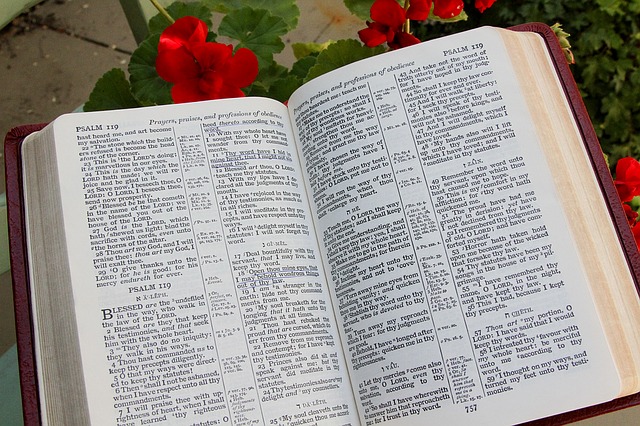
Sunday School Commentary and Preview 10-10-21

Greetings members and friends and welcome to another commentary and preview to this Sunday’s study of the Word. This Sunday’s study text is entitled “Praise God For Justice and Righteousness” and it is based on Psalms 9:1-12.
The Book of Psalms is filled with passages that encourage and tell the readers to praise God. One of the reasons for all this praise is the natural result from the descriptions, attributes and character of God the Psalms give of God.
The first two verses of the study text admonish us to praise God for His marvelous works because His works causes us to be glad and to rejoice. We simply could praise God for being God alone. But the Psalm writers in addition to that give us reasons to praise God.
The next few verses of the Psalm provide us with reasons to joyfully and gladly praise God. God is not neutral in the affairs of humanity. He is the world’s referee. He is the world’s enforcer of justice and the standard bearer and establisher of righteousness.
Those who seek justice, those who cry for mercy and those who seek His face have a friend and protector in God. This Psalm describes God as being an eternal Judge whose throne cannot be move. Everyone who stands against the righteousness of God, who opposes and oppress the weak or poor and ignore their cause is described as the wicked.
The fate of the wicked is total and complete annihilation. God will execute judgement upon them and will come to the aid and rescue of those they seek to take advantage of. God is described as a refuge for those who are the victims of the wicked and a safe place for them who place their trust in Him.
That doesn’t mean those whom God cares about and those who suffer at the hands of the wicked will be delivered out of every situation and circumstance. But it does mean that God will not forget them, what was done to them and will avenge them and make things right toward and with them.
These are some of the reasons the Psalm writers say God should be joyfully and gladly praised. He is on the side of the pure in heart. He is on the side of the poor in spirit. He is with those of a broken spirit and a contrite heart. He will seek justice for those who are and have been the recipients of those who oppose and take advantage of their fellow human beings.
Therefore, all who seek justice and righteousness and are the recipients of injustice and unrighteousness have reason not to despair. Jesus said blessed are they who hunger and thirst after righteousness because they shall be filled or satisfied.
Jesus suffered the injustices and contradictions of sinners. When He was abused, He did not retaliate; when He suffered, He made no threats, but entrusted and committed Himself to Him who judges justly and righteously.
We today are called to imitate His example and trust God, our Maker and Creator of the universe and Father of Jesus Christ, the eternal righteousness Judge and Referee, to make everything right.
In summary, this Psalm is saying to us that the wicked will not get away with their wickedness and that God is on the side of the those who seek His righteousness and He will defend and avenge them. And though He allows them to suffer, their suffering is redemptive and is never overlooked or forgotten.
If and when they are called to suffer, there is a higher and often unseen cause and meaning for their and for this God loves them and will make it right. We may have to cry, but we can rest assured that God will wipe all tears from our eyes. These are just a few of the reasons to praise God.
Well, again be sure to look over the study again and come prepared to offer your comments, questions and perspective on the meaning of the study. If you can’t attend your own Sunday School class this Sunday, you can join us live and online at 9:00 am at www.fbmbc.org and clicking the online services link.
You can also join us live by dialing 508 924-2890. If you have any comments or questions, be sure to place them in the comment section or you can share them on Sunday. So, let’s all have a great lesson and discussion this Sunday and remember to fear God and keep His commandments.
Pastor Jordan

Sunday School Commentary and Preview 10-3-21

Greetings members and friends and welcome to another commentary and preview to this Sunday’s study of the Word. This Sunday’s study text is entitled “Praise God With Joy” and it is based on Psalms 100.
One of the most inspiring and beautifully written Psalms in the bible is Psalm 100. The only Psalm more widely known or memorized is Psalm 23.
The Psalm begins with a universal or worldwide call or summons for all the inhabits of the world to recognize, acknowledge and praise the God of Creation who is also the God of Israel. They should do this by making a shout of praise and thanksgiving arising out of joy for the blessing of the Creator.
Because of this relationship with God, everyone who is called to make this joyful noise is also called to serve, worship and obey the Lord with gladness and appreciation. This relationship also calls all subjects to come before the Lord’s presence with songs and praise in keeping with the joy, gladness and thanksgiving God is worthy of.
The reason for all this praise, thanksgiving and joy is because it is known that the Lord, the God of Israel, is the one and only God. He is the One who has made everyone. No one has made themselves.
Then the Psalmist gets personal by extending the closeness of their personal relationship with God. While all creatures and people belong to God, God has established Himself a family relationship with some of the people He has made.
They are special in the same sense of belonging to one’s own household or family. He provides, protects and watches over them like a shepherd over the flock he cares about. Again, the Psalm says how God’s people should enter into His presence as those who are grateful and thankful to be in this kind of relationship with their Creator and God.
In conclusion, the psalm extols three great attributes upon the Lord. First, God is good. He has done what is in the best interest of those He has made. He wants that which is best for those He made.
Next, God is merciful. God has not deal with mankind entirely according to his sin, wickedness and disobedience. Because God has given man the space and chance to repent of his wrongdoings. And if man repents, God will never bring it up again. His mercy is everlasting nor does it have an end.
And last but not least, the truth about God and the truth of God continues from generation to generation. God is eternal and all about Him is eternal. Whatever there is about God does not cease with the passing of men. God was here before man, God is here with man and God will be if and when men cease to be. He is the God of all generations.
There was a time when scripture memorization was part of formal and religious education. People in my parent’s generation knew the 23rd Psalm and also as many knew the 100th Psalm. This is one of the things that is missing in our culture and society today. People are unfamiliar with scripture and these Psalms.
There is something very special about these Psalms because they tell us something about ourselves and about the God who made us unlike any other passages of scripture. Let us commit to memorizing them again and teaching and helping generations of people do the same who don’t know the God who has made them.
Well, again be sure to look over the study again and come prepared to offer your comments, questions and perspective on the meaning of the study. If you can’t attend your own Sunday School class this Sunday, you can join us live and online at 9:00 am at www.fbmbc.org and clicking the online services link.
You can also join us live by dialing 508 924-2890. If you have any comments or questions, be sure to place them in the comment section or you can share them on Sunday. So, let’s all have a great lesson and discussion this Sunday and remember to fear God and keep His commandments.
Pastor Jordan

Sunday School Commentary and Preview 9-26-21

Greetings members and friends and welcome to another commentary and preview to this Sunday’s study of the Word. This Sunday’s study text is entitled “Believers Praise God” and it is based on Acts 2:32-33, 37-47.
The text describes the end of a message that the Apostle Peter gave to explain to a gathered crowd the meaning of what they were witnessing. The bible describes the phenomenon as “the Day of Pentecost”.
The prefix “pent” means five as used to name the five-sided government building called the Pentagon that houses the US military administration. Pentecost was a feast that lasted 7 weeks or 49 days following Passover also known as the “Feasts of Harvest” or “Feasts of Weeks”. On the fiftieth day, there was to be an offering representing the “firstfruits” of the harvest and a day of celebration and day of praise for all of Israel.
Its spiritual or religious significance coincides with the fact that the law was given from Sinai on the fiftieth day after the deliverance from Egypt. On that day it is said that the nation of Israel was born.
Similarly, on the fiftieth day after the crucifixion of Jesus or when the Passover Lamb of God was slain, the fulfillment of time was complete for the church to receive the promise of the Father or Holy Spirit. In this moment it can be said that similarly the Christian Church was born.
On that day there were many God-fearing people and Jews gathered in Jerusalem from many different nations and languages. Under the influence of the Holy Spirit, the disciples who were gathered together began to praise God in different languages so that people could hear and understand what they were saying regardless of their native language.
When those who heard and witnessed this phenomenon wondered what it all meant, Peter addressed them and explained it to them. He concluded by saying that God raised Jesus from the dead and that He is exalted on the right hand of God and what they were seeing and hearing was the birth of the Church in the receiving of the Holy Spirit as promised by Jesus and the Father.
This outpouring of praise along with Peter’s explanation convinced thousands who were there to ask what should they do. Here Peter establishes the way into the Christian Church through repentance and baptism. Those who do this will also receive the gift of the Holy Spirit.
On that day, the church went from about 120 people initially gathered waiting on the Holy Spirit to over three thousand in that day. God has been adding people to the church since that day up until now and will continue to do so until Christ’s return. Peter describes this period of time as the last days.
There was and should continue to be a bond of love, concern and mutual cause and purpose within the church. The text describes this in the study text as how the first disciples viewed and acted among themselves. This intensity, shared and belief in common and mutual interest has diminished and diverged over the centuries, but it remains a model for Christian communities over the world. We would do well to seek to follow their example today.
Well, again be sure to look over the study again and come prepared to offer your comments, questions and perspective on the meaning of the study. If you can’t attend your own Sunday School class this Sunday, you can join us live and online at 9:00 am at www.fbmbc.org and clicking the online services link.
You can also join us live by dialing 508 924-2890. If you have any comments or questions, be sure to place them in the comment section or you can share them on Sunday. So, let’s all have a great lesson and discussion this Sunday and remember to fear God and keep His commandments.
Pastor Jordan

Sunday School Commentary and Preview 9-19-21

Greetings members and friends and welcome to another commentary and preview to this Sunday’s study of the Word. This Sunday’s study text is entitled “Glorifying God” and it is based on Mark 10:46-52.
Glory is a word used to describe or express the ideas of importance, greatness, honor, splendor, power, and so on upon someone or something. Glorying God is the actions, behaviors and/or appearances of individuals and things that bring this description and expression to God.
Jesus entire mission was aimed at bringing glory to God. Jesus never sought glory for himself. We as believer should do the same. He gave credit to the Father for all He was able to do.
In the text today, Jesus, his disciples and a large crowd of people were leaving the city of Jericho. Somewhere along the way a man identified as Bartimaeus hear that Jesus was passing by.
Somehow, he had the idea and belief that Jesus could help him see again. He began to yell for Jesus to have mercy upon him. Some of the people who heard him told him to stop yelling and making so much noise. But the more they said be quiet, the louder he became. He was loud enough for Jesus to hear.
It should be noted that he called Jesus the son of David. For those who may not know, David was the second king of Israel who God promise that his throne shall be everlasting or eternal. Jesus according to biblical genealogy was a descendant of David through Joseph from whom He received His name. Jesus is of the house and linage of King David and heir to God’s promise to David to established his eternal throne.
Jesus stopped and told the crowd to bring Bartimaeus to Him. As they came to get him, they told him to calm down and cheer up because Jesus was calling for him. When he made his was to Jesus, Jesus asked him what did he want with Him.
Bartimaeus asked Him to give him back his sight. Jesus responded that Bartimaeus’s faith, his belief that Jesus could do what he asked, has healed him and to go his way. Immediately he received his sight and began to follow Jesus.
There is no other mention of Bartimaeus in the New Testament. The fact that he believed Jesus could heal him, that he would not give up despite the efforts of others to tell him to be quiet and that his sight was so important to him that he wouldn’t be denied is an example of bringing glory to God.
The bible says that those who are saved will bring their glory into the eternal city. Their glory is derived or comes from the saving power of God. Like Bartimaeus, the saved believe God is able to do something that seems impossible like restoring sight to the blind, but in their case is to receive power over death or salvation.
Like Bartimaeus, there are those who encourage them to not to try like they told Bartimaeus to be quiet, but in the saved case it is overcoming the negativity, doubt and discouragement of others and the world.
And finally, the saved are like Bartimaeus because they wanted something, in his case sight, in their case eternal life and they like him won’t let anything kept them from obtaining it. Bartimaeus actions, as well as the actions of the saved, bring glory to God.
They, like Bartimaeus, prove that faith is the means to not only receive that which matters most, but is also that which brings glory to God by allowing Him to honor or reward faith. And in seeking God’s glory, they in turn will receive glory. Jesus was glorified as a result of seeking God’s glory. Believers too will be gloried as a result of seeking God’s glory.
Well, again be sure to look over the study again and come prepared to offer your comments, questions and perspective on the meaning of the study. If you can’t attend your own Sunday School class this Sunday, you can join us live and online at 9:00 am at www.fbmbc.org and clicking the online services link.
You can also join us live by dialing 508 924-2890. If you have any comments or questions, be sure to place them in the comment section or you can share them on Sunday. So, let’s all have a great lesson and discussion this Sunday and remember to fear God and keep His commandments.
Pastor Jordan

Sunday School Commentary and Preview 9-12-21

Greetings members and friends and welcome to another commentary and preview to this Sunday’s study of the Word. This Sunday’s study text is entitled “David Dances Before the Ark” and it is based on 2 Samuel 6:1-5, 14-19.
One of the most sacred objects in the Israelite cultic is the “Ark of the Covenant”. The Ark was made according to specifications given by God of acacia wood. Upon the top of the ark was a golden plate upon which two cherubim, with raised wings and facing each other, covered the ark.
The ark represented and symbolize the presence of God with Israel on their journey to and settlement in the promised land. Probably more important than the Ark itself was what was placed inside it.
Moses was instructed to place the ten commandments that God Himself carved out of stone inside the Ark. The Ark was fitted with rings, one at each of the four corners, and through these were passed staves of the same wood similarly overlaid, by which it was carried by the Levitical priest.
The Ark went before the Israelites at the crossing of the Jordan and the waters stop flowing when the priest stepped in with the Ark until the children of Israel had crossed. It went before the children of Israel as they marched around the city of Jericho before the walls fell. It was also often carried into battle against Israel’s adversaries.
Before Israel’s first king was anointed, the Ark had a home in the house of a man by the name of Abinadab, whose son was its guardian. David brought the Ark to Mount Zion in Jerusalem, after he had established his camp and court there and placed it in a tent prepared for it. It remained there until Solomon built the temple and placed it in the holy of holies in the temple.
The Ark was lost after the fall of Jerusalem and its fate is unknown after the destruction of the temple by the Babylonians. In the text today, David attempts to move the Ark from the house it had been in for many years to a place in Jerusalem.
He was excited to bring such a sacred object to Jerusalem, but he made a mistake in transporting it by not allowing the priest to carry it by the staves but instead placed it on a cart. When someone touched it to keep it from falling, that person died. David had to temporarily halt the transport for about three months. He resumed the transport by doing it the correct way and brought it into the city.
David called all Israel together to celebrate the placing of the Ark inside a tent that had been prepared for it. David led the procession and danced and praised God along with the rest of the people. Some may have thought that the king was not behaving kingly including his wife Michal the daughter of Saul the previous king.
But David was genuinely thankful for what God had done for him and the children of Israel and for allowing him to bring the Ark into the city. His dancing and praising, as he led the nation into the same, was his way of worshipping, praising and saying thank you to God for being the God of Israel and making him their king.
While our worship and praise may not be as animated as David’s was as he brought the Ark into Jerusalem, it must always be just as genuine. David was said to be a “man after God’s heart”. God seeks true worshippers who do not just offer lip service, dancing and shouting.
There is nothing wrong with those things and there is a time and place for them. They are fine as long as they are accompanied by obedience to His word. For obedience is better than all the sacrifices of praising, dancing, singing and worshipping in the whole world. No matter how we worship and praise, let’s make sure it is genuine and from the heart.
Well, again be sure to look over the study again and come prepared to offer your comments, questions and perspective on the meaning of the study. If you can’t attend your own Sunday School class this Sunday, you can join us live and online at 9:00 am at www.fbmbc.org and clicking the online services link.
You can also join us live by dialing 508 924-2890. If you have any comments or questions, be sure to place them in the comment section or you can share them on Sunday. So, let’s all have a great lesson and discussion this Sunday and remember to fear God and keep His commandments.
Pastor Jordan

Sunday School Commentary and Preview 9-5-21

Greetings members and friends and welcome to another commentary and preview to this Sunday’s study of the Word. This Sunday’s study text is entitled “Moses and Miriam Praise God” and it is based on Exodus 15:11-21.
Songs are and have been a method of communicating human events, feelings and experiences. Songs that are set to music are and have been an effective method of transmission of something important from generation to generation. Today’s text is one such song.
Of all the events God is said to have done, the parting of the Red Sea is one He is widely known for doing. According to the bible, as the Egyptian army was closing in on the parting Israelites, they found their escape route blocked by the Red Sea.
With no where to go, God used wind to part the sea making a path through the sea for the Israelites to cross over onto the other side. When the Egyptians tried to pursue them, God hindered them. There was a wall of water on both side of the dry pathway through the sea.
After the Israelites reached to other side of the sea, God caused the waters of the sea to come back together. The Egyptian army who had entered the sea in pursuit of the Israelites were unable to retreat out of the sea before the waters came back together and were overthrown, drowned and destroyed in the sea.
If any event is worthy of a song, this event is one. The song is essentially a praise of the wonder and power of God. It is a praise of Him as a Savior and God of Israel. The leader of the song is Moses along with his sister Miriam.
The song speaks of the uniqueness of God. It praises His holiness and power over the earth and forces of nature. It praises His devotion to Israel and His power to deliver His people from danger. Moses goes on to sing about how God has used this event to spread and bring fear upon all nations who would stand before Israel.
The song lifts up God special relationship with Israel as His covenant people and how He will establish them in His sight and the sight of all. He sings of God’s eternal nature and closes with the description of the destruction of the Egyptian army.
Then Miriam picks up the same theme as she gathers others to sing along with her. They praise God for their salvation by describing the way God delivered them out of the hands of the Egyptian army.
Songs are often written so people can hear about and remember something that happened. This song about the deliverance of the Israelites by parting the Red Sea is a song that testifies of an unparalleled event in human history that should never be forgotten and for which God made Himself known around the world.
Those who saw it and were the benefiters of it couldn’t help but sing and praise God for what they experienced and leave a record of it for those of us in the future to hear.
Well, again be sure to look over the study again and come prepared to offer your comments, questions and perspective on the meaning of the study. If you can’t attend your own Sunday School class this Sunday, you can join us live and online at 9:00 am at www.fbmbc.org and clicking the online services link.
You can also join us live by dialing 508 924-2890. If you have any comments or questions, be sure to place them in the comment section or you can share them on Sunday. So, let’s all have a great lesson and discussion this Sunday and remember to fear God and keep His commandments.
Pastor Jordan

Sunday School Commentary and Preview 8-29-21

Greetings members and friends and welcome to another commentary and preview to this Sunday’s study of the Word. This Sunday’s study text is entitled “Hope Eternal” and it is based on 2 Corinthians 4:16-18; 5:1-10.
Today’s text and title captures the essence of the Christian faith and message. At the core of the faith is the hope of eternal life and glory. Life as we know it and experience it, in spite of the least appealing and adverse aspects, is such a wonderful gift that most people would preserve it if they could.
Christianity gives us a way to do just that. In the study text, the Apostle Paul expresses the struggle of life in the here and now and contrasts it to the Christian hope of eternal glory. He suggests the that the heavenly experience of life with Christ so far exceeds life here and now that our life now is not worthy to even be compared with the life we expect.
The physical body dies and decays a little each day but the spiritual man within the physical body is rejuvenated day by day. Then he begins to talk about a desire to depart this world and receive the eternal inheritance of the faithful.
All believers have the assurance that once and if our earthly bodies are destroyed, we have another more permanent heavenly body. And because of this we groan (or have a spiritual longing) to be clothed or to put on our heavenly bodies.
He uses the phase “being found naked” which I believe means to die without a place for or having made provision for our souls. Our earthly bodies get weary and worn but the bodies we long for are not burdened with any of the defects of our current bodies. Therefore, believers have a desire to shed these bodies and be clothed with eternal heavenly bodies.
As proof that these believers shall receive these new bodies, God has given the Holy Spirit which serves as a type of down payment for all that which is to follow. The presence of the Holy Spirit should give us even more confidence that after our earthly journey is over, we shall go be with the Lord.
Not that any of this is guaranteed because we walk by faith and not by sight. But this is the believer’s hope and confident faith that it shall come to pass.
The next statement that Paul makes I believe has been misinterpreted and misread. The misinterpretation is that upon death believers are immediately in the presence of the Lord. They read Paul as saying “To be absent from the body is to be present with the Lord”. But this is not what the Apostle said.
It harkens back to all that he has already said about desiring to be clothed with a heavenly body. What the text says is what he had already stated. He would rather be absent from this presence body and be with the Lord.
This is a statement of desire only. Paul is not intending nor is he making a declaration of what happens immediately upon death which his statement has been mistaken to mean. This misinterpretation ignores all the other passages that use the word “sleep” to describe the state of those who have died beside others that are problematic of such a misinterpretation.
Then he talks about laboring which means all the things faith demands and we must endure to be found in Christ or accepted of Him. Christian faith requires that we do something. It not about words of affirmation or confession, but about expressing and living a life that is pleasing to God.
He ends this section by saying humanity, including himself and all believers, will answer for the life we lived and receive a judgement based upon those things. The core hope and belief of Christians is the eternal continuation of life.
That eternal existence will be realized in heavenly bodies unlike our frail, mortal earthly bodies that are designed for life in another eternal realm.
Well, again be sure to look over the study again and come prepared to offer your comments, questions and perspective on the meaning of the study. If you can’t attend your own Sunday School class this Sunday, you can join us live and online at 9:00 am at www.fbmbc.org and clicking the online services link.
You can also join us live by dialing 508 924-2890. If you have any comments or questions, be sure to place them in the comment section or you can share them on Sunday. So, let’s all have a great lesson and discussion this Sunday and remember to fear God and keep His commandments.
Pastor Jordan

Sunday School Commentary and Preview 8-22-21

Greetings members and friends and welcome to another commentary and preview to this Sunday’s study of the Word. This Sunday’s study text is entitled “A Conquering Faith” and it is based on 1 John 4: 2-3, 13-17; 5:4-5.
John, the brother of James and son of Zebedee, an apostle and eye witness of Jesus Christ, is believed the be author of this epistle along with two other epistles and a gospel that bears his name. This same John is also believed to be the writer in the of book of Revelation.
To better understand the study text, it is particularly important to keep in mind the context and situation and audience to whom John is writing. The church is in its infancy. Many, if not most, of the converts and believers were new to monotheism and didn’t have a background in faith or theology.
There were several teachings and doctrines concerning Jesus that were circulating at the time of John’s letter. People didn’t have a complete canon of scripture. In fact, people didn’t have any definitive, authoritative, official church teaching they could read and rely on. Communication was fragmented at best and people were acting upon bits and pieces of what they had seen or heard and forming all kinds of conclusions about Jesus and this new religion and faith.
John’s letter is written in part to help settle and clarify some misconceptions and understandings about Jesus and the faith. Regardless of what others were saying about Jesus and the faith, John wanted to establish the following things.
John wanted to establish that Jesus was fully human and that those who confessed so correct and those who deny He is anything or anyone otherwise are false. He verifies the presence of the Holy Spirit and it is by Him God dwells in believers.
John establishes his credentials as an eye witness of who Jesus was and is and the purpose of His coming which was and is to save the world. He states that Jesus is the Son of God and he didn’t mean it metaphorically. This is a prime test of those who are of God when they attest to these things.
Another attribute of true believers and witnesses is godly love. John said that he was a witness and recipient of God’s love. Those that abide in this love abide also in God. The way Jesus loved is the way believers love which make them like God. To overcome the world is to be born of God and to be born of God is to believe that Jesus is God’s Son.
This all may seem simple and just a matter of semantics or saying the right words. The truth is that it is simple. But we must understand that John was combating a wave of false teaching and misunderstanding about who Jesus is and what faith and salvation in Him mean.
Therefore, he was attempting to make the gospel as plain and as simple as possible in a day of poor communication, of illiteracy and ignorance concerning the things of the true and living God.
The most direct, essential and easiest way to establish the fundamental tenants and truth of the gospel is what we are reading in this portion of John’s letter addressed to people who are new to the faith and are being bombarded by all types of false, misleading and misinformation concerning the truth about Jesus Christ.
John knew the truth of who Jesus Christ is was needed then and is still needed now to overcome the world.
Well, again be sure to look over the study again and come prepared to offer your comments, questions and perspective on the meaning of the study. If you can’t attend your own Sunday School class this Sunday, you can join us live and online at 9:00 am at www.fbmbc.org and clicking the online services link.
You can also join us live by dialing 508 924-2890. If you have any comments or questions, be sure to place them in the comment section or you can share them on Sunday. So, let’s all have a great lesson and discussion this Sunday and remember to fear God and keep His commandments.
Pastor Jordan
Comments

Sunday School Commentary and Preview 8-15-21

Greetings members and friends and welcome to another commentary and preview to this Sunday’s study of the Word. This Sunday’s study text is entitled “A Persevering Faith” and it is based on the Epistle or letter to the Hebrews 10:23-36.
Many people within the Christian church have a causal conception of and attitude toward sin. By that I mean we have the idea or notion that continual sin in our lives is of no consequence because it is all forgiven. The Writer in today’s text takes exception to this.
There are two words I want to define in context to begin with. “Perseverance” is a word which basically means not to quit or give up something you are pursuing. In this case, we are admonished not to quit or give up on our faith.
The second word is “apostasy”. Apostasy basically means to renounce, abandon or turn on or away from something once embraced or claimed. More about this word in a moment. Hope and faith are tied inextricably together. Faith is what underpins or sustains hope. We are told to hold on tight to what we are hoping for without wavering. We remain hopeful through our faith.
We are called upon to love, work and stay together with others with the same hope and faith in order to strengthen and encourage one another. These measures are a means by which believers can continue to persevere. Verses 26 and 27 are the problematic verses which I alluded to earlier.
What is “willful sin” in the context of this passage? The verses say that those who willingly sin after having knowledge of the truth will not receive salvation because there is no remedy for their willful sin. There seems to be a consensus among most commentators a have referenced that those who these verses refer to are apostates.
Apostates are people who once confessed Christianity, considered it, understood it and walked away from it. After all, the segment begins with an admonition to hold on and not waver which those who walk away or abandon the faith have done. While I do not dismiss or say the writer did not have these people in mind, I also believe there are others beside these he is referring to.
Who will argue that all sin is not willful? Just consider James 1:14-15 as one example. Willful sin must not be limited to those who know, renounce and walk away. But it also must include those who know but continue to confess the faith. The text does not make a distinction between the two groups.
If fact the writer uses the inclusive “We” referring not to those who have walked away, but to those who are within including himself. We have been misled and are misleading each other by understating and undervaluing the importance of obedience to God and the destructive nature of sin.
Willful sin includes those sins we presumptuously assume are inconsequential, have no effect on our salvation or relationship with God and we continue to excuse ourselves for committing and for missing the mark. The sins the writer is referring to are those that can be avoided and we don’t have to commit.
It is foolish, unfounded and unwise to believe that all sin is unavoidably. Sin is something that should be and can be avoided. It is the sin we are not resisting and choosing to commit that are being willfully committed which “insults the Spirit of grace” and treats the blood of Jesus as something common we take for granted.
Take a look at 1 John 2:1. Here the expectation is that “we will not sin”. It is the sparing application of the blood that is there in what should be the rare cases we should need it. This callous attitude toward sin and the excuses we have been and are making for it within the church will lead and had led to the destruction of many.
The Hebrew writer concludes this segment by stating the reverent fear of God in reference to this willful sin and admonishing us to endure whatever comes our way. For if we endure, we will receive the great reward of promise. Yes, the apostates are included, but so are all of us who are choosing to miss the mark we are able to hit.
Well, again be sure to look over the study again and come prepared to offer your comments, questions and perspective on the meaning of the study. If you can’t attend your own Sunday School class this Sunday, you can join us live and online at 9:00 am at www.fbmbc.org and clicking the online services link.
You can also join us live by dialing 508 924-2890. If you have any comments or questions, be sure to place them in the comment section or you can share them on Sunday. So, let’s all have a great lesson and discussion this Sunday and remember to fear God and keep His commandments.
Pastor Jordan

Sunday School Commentary and Preview 8-8-21

Greetings members and friends and welcome to another commentary and preview to this Sunday’s study of the Word. This Sunday’s study text is entitled “The Meaning Of Faith” and it is based on the Epistle or letter to the Romans 11:3-8, 13-16.
This Sunday’s study is a continuation of the Apostle Paul’s letter he wrote to the church at Rome. This part of his letter is sometimes referred to as the “hall of faith” chapter because Paul cites examples of people in the scriptures who exemplifies faith.
In this chapter of his letter, Paul describes the meaning, purpose and role of faith in God by citing examples of faith expressed by people through their relationship with God. It is an example of showing someone what something is as opposed to telling or describing what it is. For example, showing me a lion or the color red make it clearer to me than describing them to me.
Paul begins with somewhat of an abstract statement by declaring faith to be that which supports or underpins hope and the proof or certainty of what is unseen. He then sets to demonstrate this meaning by citing examples of those who exhibited it.
His first witness is all believers. By faith all believers believe God’s own words framed or brought into existence the world which exist from that which did not exist. All believer’s faith begins with a belief in God.
His first individual witnesses who believed in God with hope of receiving something unseen are Abel, Enoch and Noah. In each of these witnesses, Paul points to the fact that they sought to and did please God because of God’s response to their efforts. Their actions revealed a hope for something unseen by or through an unseen God.
Abraham is Paul’s next witness. Abraham believed by obeying God, even without knowing where he was going or how God would do it, he would receive an inheritance. Faith persists even through death.
Though Abraham didn’t realize by taking possession of the promised land in his natural life nor his son or grandson, they nevertheless didn’t abandon their faith that God would do what He promised while confessing they were passing through this land. This is the meaning, purpose and role of faith as seen in the activities of others.
Faith motivates to action. Faith endures until what is hoped for is realized. Once that which is hoped for is actualized, the faith needed to sustain that hope is no longer relevant. For Abraham and all those who have faith in God their destination of hope is an eternal place with an eternal God.
Well, again be sure to look over the study again and come prepared to offer your comments, questions and perspective on the meaning of the study. If you can’t attend your own Sunday School class this Sunday, you can join us live and online at 9:00 am at www.fbmbc.org and clicking the online services link.
You can also join us live by dialing 508 924-2890. If you have any comments or questions, be sure to place them in the comment section or you can share them on Sunday. So, let’s all have a great lesson and discussion this Sunday and remember to fear God and keep His commandments.
Pastor Jordan

